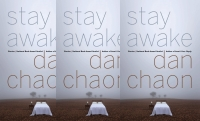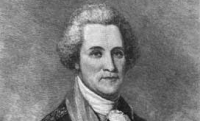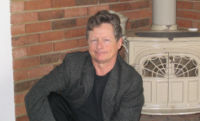Reviewed by Ben Stein, November 1, 2009
The System of Vienna: From Heaven Street to Earth Mound Square, by Gert Jonke
Gert Jonke died in January of this year, leaving behind a large body of work that includes novels, plays, and the libretto for an opera. All but a handful of these texts remain untranslated from the original German. As parts of their German and Austrian Literature Series, Dalkey Archive has released two of the novels that have been translated: Geometric Regional Novel (1994) and Homage to Czerny: Studies in Virtuoso Technique (2008). That same publisher will release a third, The System of Vienna: From Heaven Street to Earth Mound Square, in December.
The System of Vienna is slim (as are the other two from Dalkey; none of them breaks the 150-page mark) and it is “playful” – a word used frequently in reviews of and commentary on Jonke’s work, perhaps only slightly less so than “experimental.” I’d argue that what makes Vienna the former is the same thing that makes it the latter. That is, Jonke (or perhaps his semi-fictional narrator) treats syntax like a versatile toy, the way an infant treats his own knuckles. He examines the ranges and results of its articulations, tests its responses to various demands. And in doing so, he can’t help but discover some things about the ways language behaves, the ways it, in Ben Marcus’s formulation, “represent[s] the intensity of consciousness.”
Jonke’s primary method for conducting this research is a kind of linguistic fugue. The technique operates most noticeably at the level of the phrase, in ways that might at first seem accidental, then grating, then brilliant. (A half-page paragraph describing an encounter with a man who claims he is not a wholesale fish dealer contains no fewer than 11 instances of the phrase “wholesale fish dealer,” or some variation; the result is not so much a syntactic effect – examples of which I’ll come to in a moment – but an odd, iteration-driven enrichment of the non-wholesale-fish-dealer’s character; he becomes a man desperately and futilely trying to shrug his way out of a piece of language he doesn’t want to wear.) Whole clauses and sentences get a similar “theme & variations” treatment, with more concretely-linguistic effects. For instance, when the narrator describes “a street being hollowed out by the meltwater from the mountainous foothills around Vienna” and then, four lines later, refers to “the meltwater from the mountainous foothills around Vienna that’s hollowing out the streets and roads,” the reader observes that though they describe what is ostensibly the same image, the first clause is about “a street” whereas the second is about “the meltwater.” (That is, the two clauses have different subjects.) This shift in subject-ness from a static, solid thing to a dynamic, fluid one is something we can take however we want, but I should point out that elsewhere in the text, we witness similar shifts at the narrative level: architectural fixtures becoming animate, a bridge choosing to collapse itself. If those narrative moves constitute a theme, then we could take the street/meltwater moments as an instance of Jonke using grammar to construct a variation on that theme, and as an experiment with grammar as a literary mechanism.
(There’s no telling [at least not for monolingual me] to what extent the work of translator Vincent Kling affects the results of these experiments. Kling himself does have his own clever moments; at one point he describes a political lackey as being “required forthwith to move forth with the action.” At least, I assume this construction is Kling’s doing; wordplay like this tends not to translate literally.)
The fugue technique is writ large in the 12th chapter, in which is recounted an incident on a street, after which the narrator must describe for an old man the incident on the street, after which the old man must describe for an ambulance driver the incident on the street. In this particular case, there are theoretical echoes of Raymond Queneau’s Exercises in Style, but Jonke’s execution is entirely his own. Likewise, a gloss of the novel’s plot (something like: a narrator recounts in idiosyncratic fashion his mostly-mundane life, focusing largely on interactions between himself and strange-but-harmless secondary characters and unspoken anxieties about himself and the universe) suggests Beckett’s novels, the work of some of Gordon Lish’s students, and the Czech writer Bohumil Hrabal (among, probably, many others). But plot can (perhaps should) be seen as ancillary in The System of Vienna; like Beckett’s Murphy, Gary Lutz’s Stories in the Worst Way, and Hrabal’s Closely Watched Trains, what drives this book is its voice.
Which opens up a more general discussion…
The conventional way of thinking about “what drives a book” holds that there are only two options: plot, or character. You could say that a narrator’s distinct vocal texture is just a component of the latter – that, for instance, the first section of The Sound and the Fury is a rich, nuanced character study of Benjy. If you said that, I’d be hard-pressed to disagree. But you could also say that the Benjy section, and much of Faulkner’s first-person material, and the books I point to in the above paragraph, and The System of Vienna, and lots of other envy-inducingly-good writing constitutes something else, outside the plot-driven/character-driven binary: a kind of fiction whose heart and lungs are syntax and sound. Call it voice-driven, or vocal fiction; “poetic fiction” points up its relevance to ongoing discussions about the decreasingly stark distinctions among genres (which, by the way, Jonke does along a different front when he calls his book an “autobiographical novel”). What we call it is far less important than what it has to offer its readers – especially readers who are writers: an attentiveness to our materials, to the things we use to make the things we make, to words and what energies they conduct when placed or rubbed or jammed or smashed against each other. In The System of Vienna, Jonke gives all these a try and we, lucky, get to watch.
–
Ben Stein is a Contributing Reviewer for Emprise Review.
Further Reading:
Gert Jonke Wikipedia
Order info for “The System of Vienna:…”
Guardian UK piece about Gert Jonke







